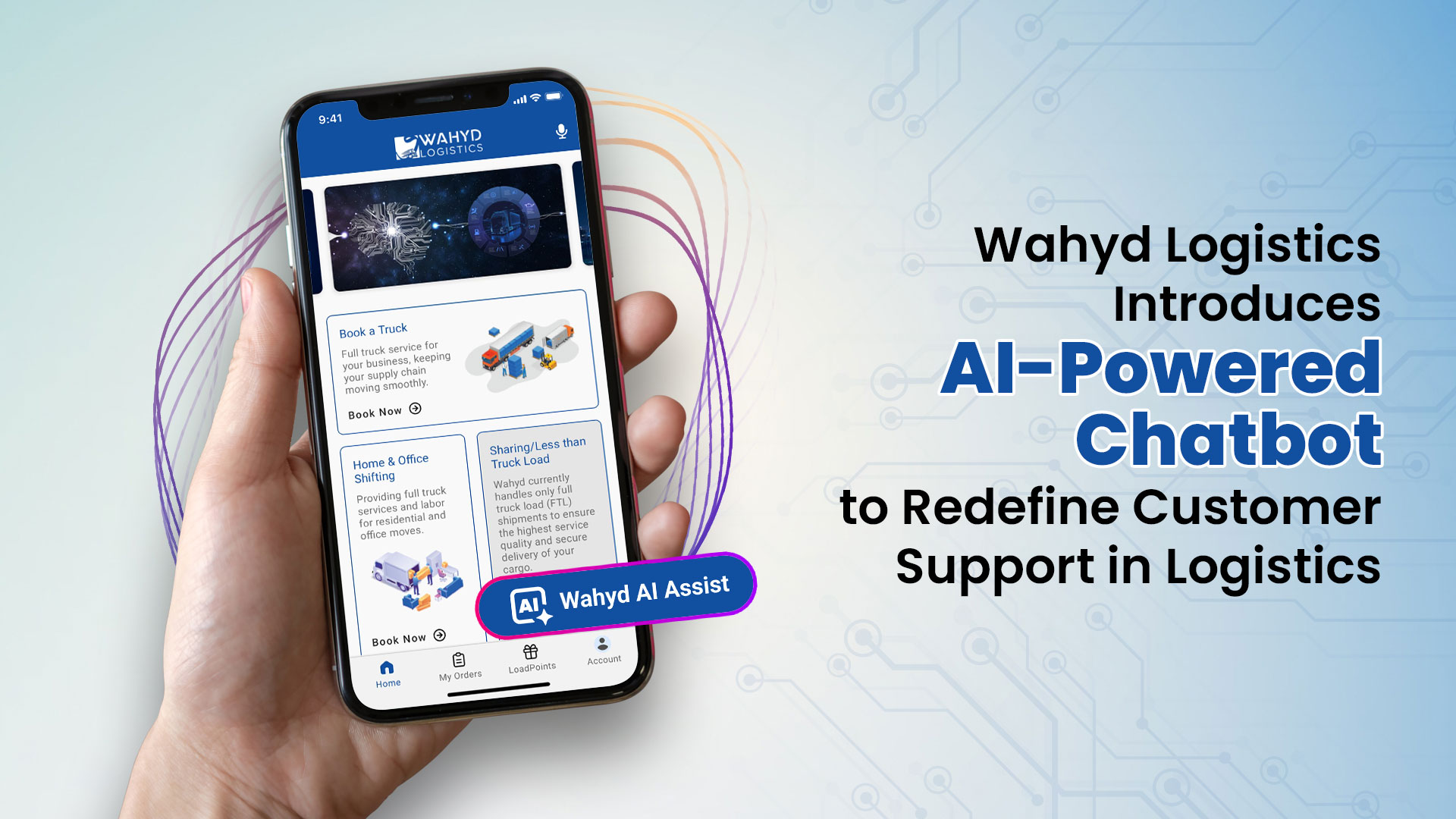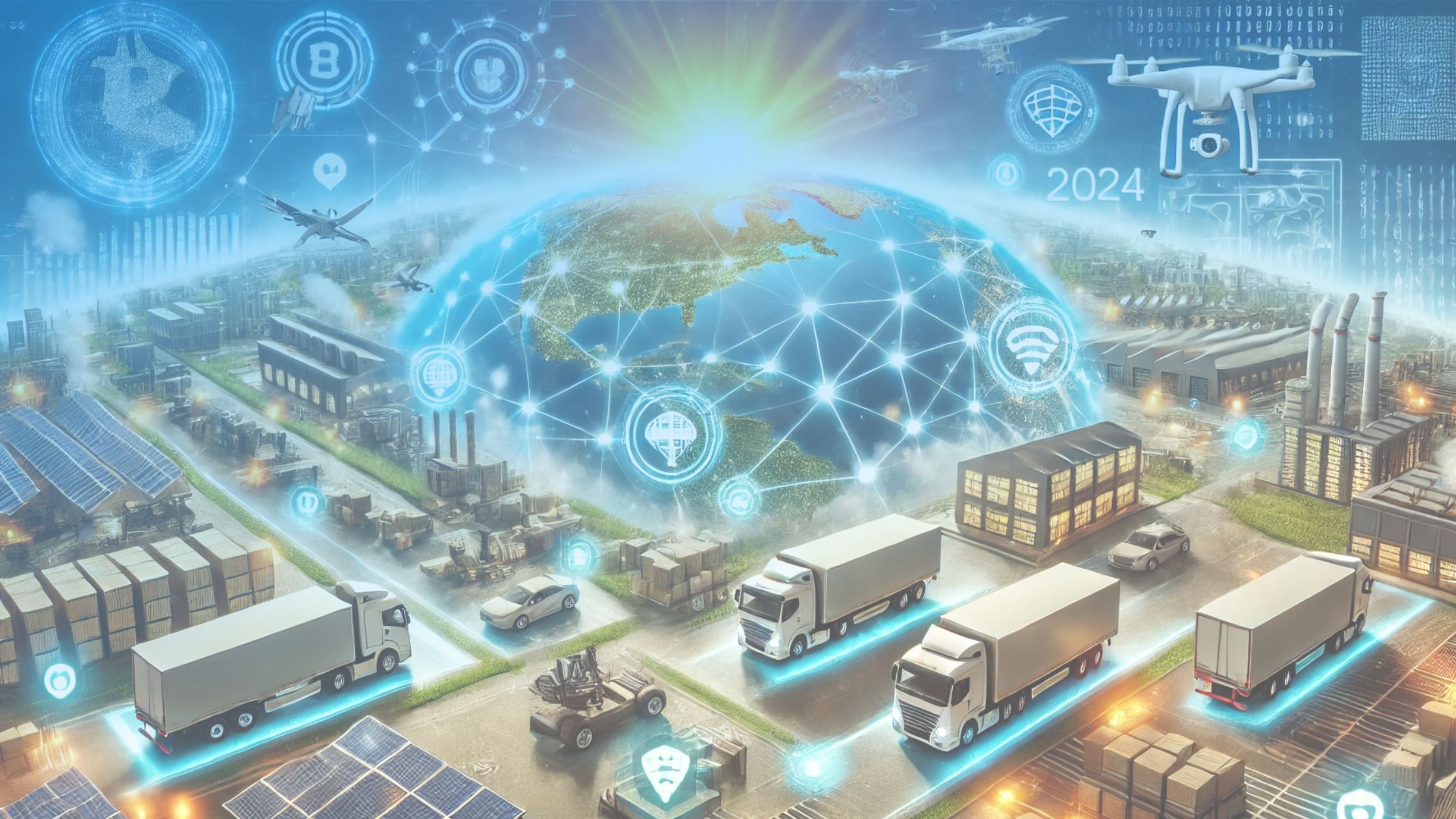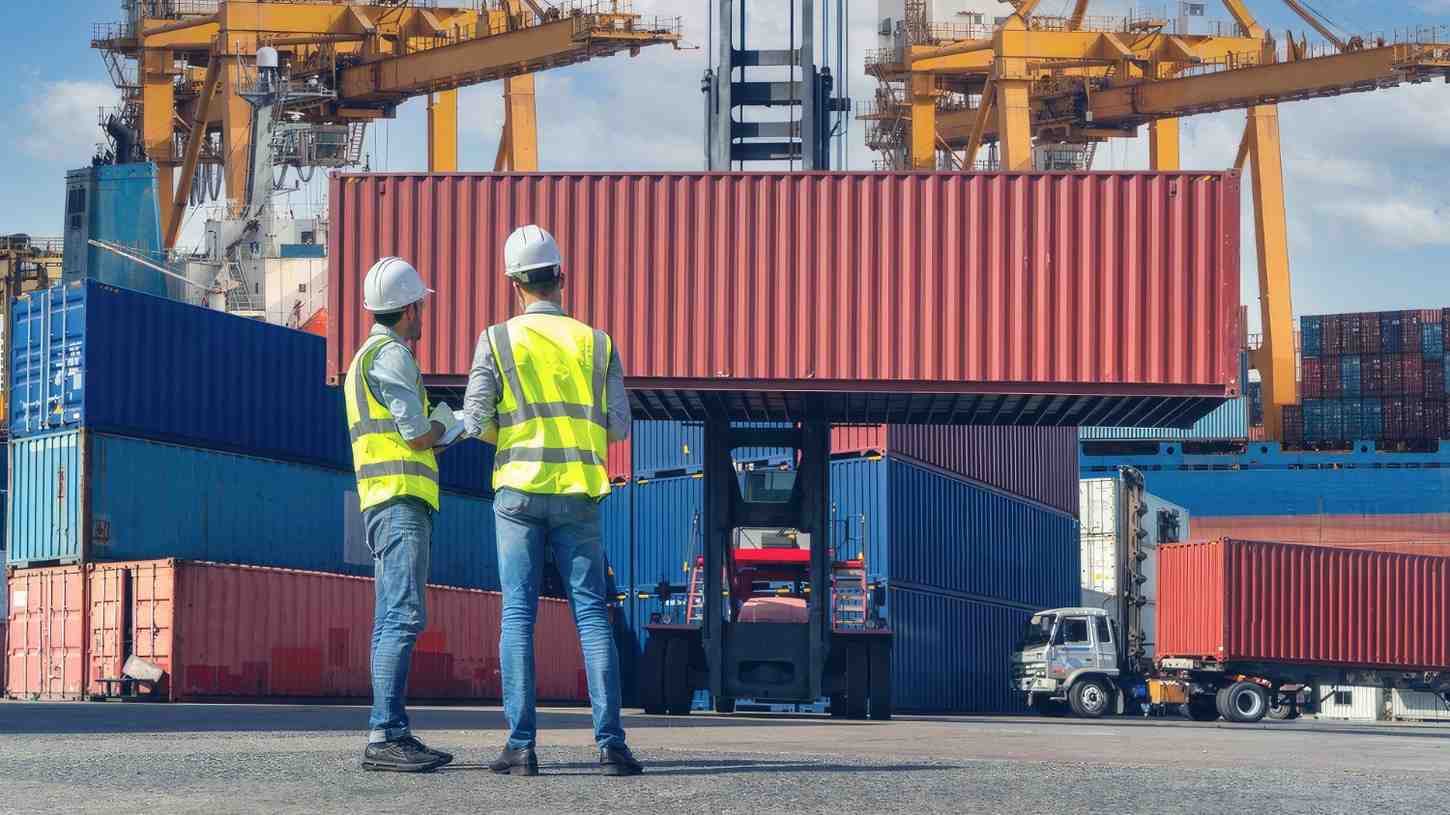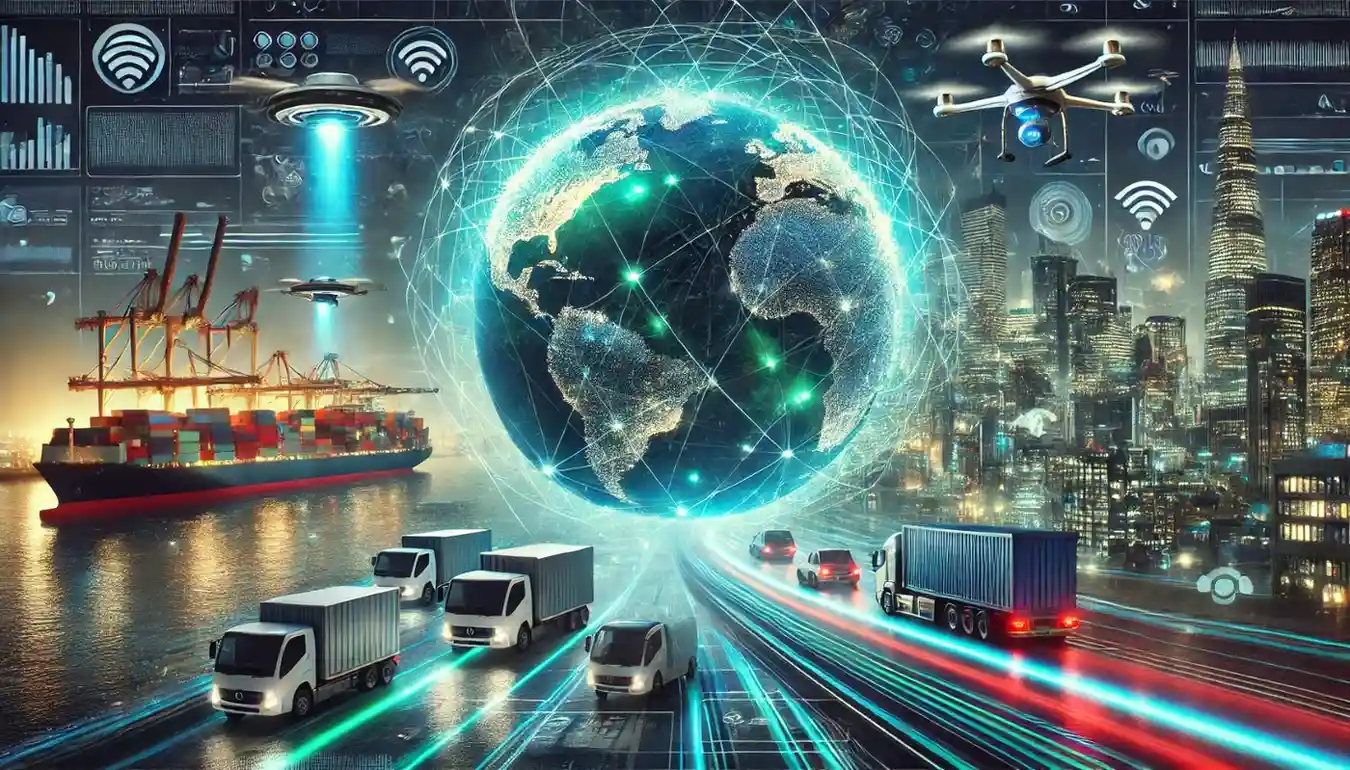
Strategically positioned, well equipped with state-of-the-art infrastructure, and supported by futuristic economic policies, the United Arab Emirates (UAE) has become a crucial game changer in the logistics industry. The logistics industry of the UAE is a fast-growing sector that covers all the activities and plays a significant role within its economic framework.
The logistics industry in the UAE is characterized by its innovative approach to overcoming regional and global challenges. With its modern infrastructure, including world-class ports and airports, the UAE stands as a testament to what visionary planning and investment in logistics can achieve. This sector is not merely a support system for the nation’s economy; it is a driving force behind its continued growth and international competitiveness.
In this blog, we will navigate through the current state of logistics in the UAE, understanding its foundations and key players. We will then transition to discussing the latest trends that are influencing the industry’s trajectory. The focus will subsequently shift to technological innovations that are revolutionizing logistics operations, followed by an analysis of government policies impacting the sector. Lastly, we will identify potential growth areas and opportunities that present themselves within this dynamic landscape.
For stakeholders, investors, and professionals looking to understand or enter the UAE logistics market, this comprehensive overview serves as an essential guide to the opportunities and challenges inherent in this rapidly evolving sector.
The Current State of Logistics in UAE
The logistics sector in the United Arab Emirates (UAE) represents the core of the nation’s economy, underpinning its status as a global trading hub. Let’s examine the present logistics landscape in the UAE, focusing on its infrastructure, key players, and the impact of various factors on the industry.
Infrastructure
The UAE’s logistics infrastructure is among the most advanced in the world. the country flaunts some of the busiest airports and seaports globally, which are vital in handling the vast volume of cargo that passes through the region. Dubai’s Jebel Ali Port, the largest man-made harbor in the world, and the Dubai International Airport, one of the busiest by international passenger traffic, are prime examples of this infrastructure Competence.
As of 2024, this sector contributes approximately 14% to the UAE’s gross domestic product, underscoring its importance. The country is actively investing in enhancing its logistics infrastructure, which includes major projects such as the USD 3.5 billion Al Mafraq-Al Ghuwaifat road upgrade. This upgrade is part of an effort to improve 246 kilometers of roads in the western region.
The UAE boasts advanced airport infrastructure, with major airports including Dubai (DXB), Dubai (DWC), Abu Dhabi, and Sharjah. In the maritime sector, Jebel Ali seaport in Dubai is the largest in the GCC, followed by Khalifa and Sharjah ports. This robust infrastructure supports the UAE’s position as a key player in global logistics.
Economic and Geographical Impact
The UAE’s strategic geographical position as a crossroads between East and West has significantly influenced its logistics success. Coupled with its economic policies that encourage free trade and investment, the country has created an environment conducive to logistics and supply chain operations.
Another critical aspect of the UAE’s logistics strategy is the focus on economic diversification. The government aims to increase the contribution of the manufacturing sector to the overall GDP from its current level of 11% to 25% by 2025. This goal is part of the broader UAE Economic Vision 2030, which seeks to develop sustainable economic diversification.
Key Market Players
The logistics sector in the UAE, as of 2024, is characterized by a mix of both international and local market players, each contributing to a dynamic and competitive landscape. Some of the key players in the UAE logistics market include:
- Deutsche Post DHL Group
- Agility Logistics
- Ceva Logistics
- Aramex International LLC
- Al Futtaim
The UAE logistics market also features other significant players like UPS, FedEx Express, Gulf Agency Company, and Emirates Post, each contributing to the sector’s growth and competitiveness.
Role of Free Zones
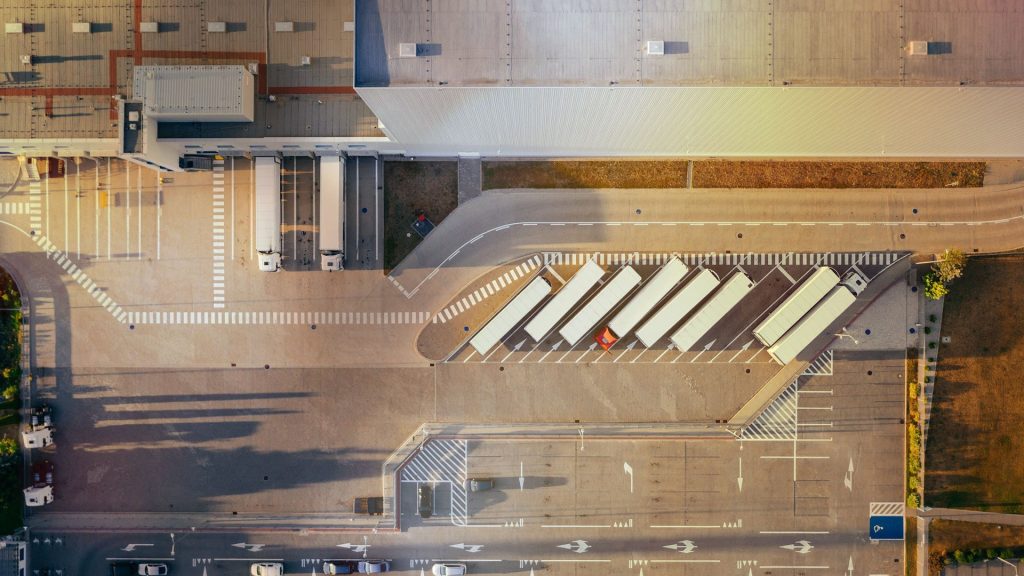
The presence of around 28 free zones in Dubai is also significant. These free zones play a crucial role in Dubai’s GDP and trade, with each zone regulated by its authority. However, some areas require attention, such as freight transportation and last-mile delivery, which are major sources of inefficiencies in the UAE’s logistics market. To address these challenges, there is a need for advancements in warehousing automation, digital freight platforms, and innovations in last-mile delivery.
Challenges and Responses
The logistics sector in the UAE is evolving with a focus on green logistics solutions, aiming to reduce carbon emissions and embrace sustainable operations. This shift towards eco-friendly practices is not only environmentally beneficial but also enhances the brand image and profitability of the companies involved.
However, the sector faces challenges such as high operational costs, influenced by factors like rising shipping costs, fluctuations in crude oil prices, the need for substantial logistics infrastructure, fluctuating global economic conditions, regional competition, and the need for continuous technological adaptation.
Another aspect to consider is the market’s fragmentation and the growing demand for segments like transportation, inventory holding, and administration, with transportation expected to contribute significantly to market growth. The market is also influenced by the growing e-commerce industry, which drives the need for efficient logistics services.
The UAE logistics market is a vibrant and evolving sector, marked by the presence of both global giants and local heavyweights, all striving for a share in a market that’s growing in tandem with technological advancements and the shift towards more sustainable practices. The sector’s future growth is expected to be fueled by innovations in automation, blockchain, and the Internet of Things (IoT), along with the rising demand in segments like pharma logistics and e-commerce logistics.
Latest Trends in the UAE Logistics Industry
The logistics industry in the United Arab Emirates (UAE) is continuously evolving, influenced by global trends and local innovations. Let’s take a look at the most significant trends currently shaping the UAE’s logistics sector.
Embracing Sustainability
In the logistics sector, sustainability has become a key focus area and the UAE is leading the way in implementing eco-friendly practices. This consists of initiatives like green warehousing, electric vehicle fleets for delivery, and sustainable packing solutions. The country is also investing in renewable energy sources to power logistics operations which reflects a commitment to reducing the carbon footprint of the industry.
The Rise of E-Commerce
The exponential growth of e-commerce in the region has significantly impacted logistics. The demand for faster, more efficient delivery services is driving logistics companies to innovate and adapt. This trend has led to the development of advanced warehousing solutions, enhanced last-mile delivery services, and innovative supply chain management strategies to cater to the e-commerce boom.
Multimodal Transportation Solutions
The UAE is increasingly focusing on multimodal transport solutions to optimize logistics operations. Integrating sea, air, and land transportation, these solutions offer flexibility, reduce transit time, and lower costs. The expansion of rail networks, such as the Etihad rail project, is a testament to this trend, promising to revolutionize freight movement across the region.
Leveraging Big Data and Analytics
Big data and analytics are playing a significant role in transforming logistics operations. By analyzing large volumes of data, companies are able to optimize routes, predict demand patterns, and enhance overall efficiency. The UAE’s logistics sector is rapidly adopting these technologies to stay ahead in a data-driven world.
Technological Advancements in Logistics
The logistics industry in the United Arab Emirates (UAE) is at the forefront of embracing technological innovations. These advancements are not just enhancing operational efficiencies but are also reshaping the entire landscape of logistics in the region.
Artificial Intelligence and Machine Learning
AI and machine learning are revolutionizing logistics in the UAE. From predictive analytics for demand forecasting to automated customer service interfaces, these technologies are enabling smarter, more efficient logistics operations. One notable application is in inventory management, where AI algorithms optimize stock levels, reducing waste and improving availability.
Internet of Things (IoT)
IoT technology has brought significant improvements in tracking and managing logistics operations. Real-time tracking of shipments, condition monitoring of goods in transit, and fleet management are some areas where IoT is making a substantial impact. The integration of IoT devices with other systems is creating a more connected and transparent supply chain.
Automation and Robotics
Automation through robotics and automated guided vehicles (AGVs), is increasingly being adopted in warehousing and distribution centers. This not only speeds up the process but also reduces human error. Dubai’s adoption of drone technology for delivery services is a prime example of how automation is being integrated into last-mile delivery.
Blockchain for Enhanced Security and Transparency
Blockchain technology is gaining traction in the UAE’s logistics sector, primarily for its ability to provide enhanced security and transparency. By enabling secure, tamper-proof transactions and tracking, blockchain is particularly useful in areas like customs clearance and freight tracking, ensuring integrity and reducing delays.
Advanced Analytics and Data-Driven Decision Making
The use of advanced analytics is enabling logistics companies in the UAE to make more informed, data-driven decisions. By analyzing patterns and trends, companies can optimize routes, predict maintenance requirements, and improve overall service delivery, leading to enhanced customer satisfaction.
Government Policies and Their Impact
Let’s examine how governmental strategies and initiatives are influencing the logistics sector and what role is being played by the government of the United Arab Emirates (UAE) in shaping the industry through its policies and regulations.
Strategic Economic Plans
The UAE’s vision for economic diversification, as outlined in Vision 2021 and the UAE Centennial 2071 plan, places significant emphasis on developing logistics as a key driver of sustainable growth. Policies focusing on strengthening infrastructure, increasing foreign investment, and enhancing trade relations are essential in this strategy.
Regulatory Frameworks for Trade and Logistics
The UAE government has implemented a range of regulatory reforms to streamline logistics operations. These include simplifying customs procedures, adopting international best practices in trade facilitation, and providing incentives for logistics companies. The impact of these regulatory changes on the efficiency and competitiveness of the logistics sector will be analyzed.
Focus on Technology and Innovation
Government initiatives to promote technology and innovation in logistics are critical. Programs like the Dubai Future Accelerators and Abu Dhabi’s Hub71 are designed to support tech start-ups, including those in the logistics domain. Such initiatives are fostering a culture of innovation and aiding the adoption of new technologies in logistics.
Investment in Infrastructure Development
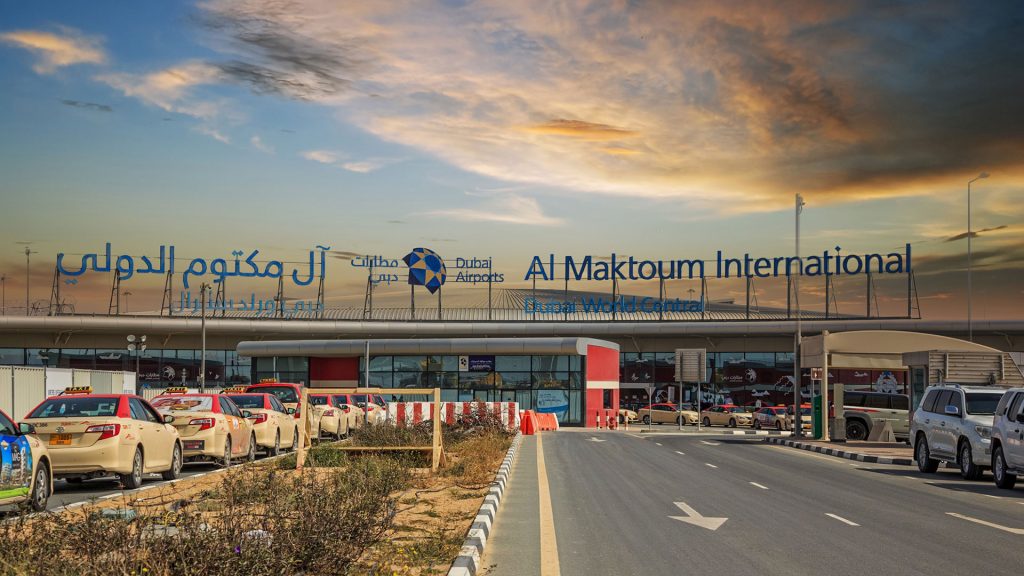
The UAE’s continual investment in developing world-class logistics infrastructure, such as ports, airports, and free zones, is a key policy area. Projects like the expansion of Al Maktoum International Airport and the Khalifa Port expansion illustrate the government’s commitment to enhancing the country’s logistics capabilities. The impact of these projects on the UAE’s logistics landscape will be phenomenal.
Policies for Sustainability and Green Logistics
The UAE’s commitment to sustainability and green logistics is represented in several key policies, including the Green Agenda 2030, which targets a substantial increase in GDP and exports while significantly reducing emissions. The Circular Economy Policy further underlines this commitment, emphasizing sustainable governance and efficient natural resource use across vital sectors like transportation and manufacturing.
Additionally, sector-specific strategies like the Dubai Industrial Strategy 2030 and the Dubai Autonomous Transportation Strategy align with these goals, focusing on knowledge-based, sustainable business practices and autonomous transportation. These initiatives collectively represent the UAE’s holistic approach to integrating sustainability into its economic and social fabric.
Potential Growth Areas and Opportunities
The logistics industry in the United Arab Emirates (UAE) is ripe with potential growth areas and opportunities, driven by the region’s strategic vision and the evolving global trade landscape. This section explores these prospects, offering insights for stakeholders looking to capitalize on the flourishing logistics market in the UAE.
Expansion in E-commerce Logistics
The booming online shopping industry is creating big chances for companies that provide logistics services. With more people buying things online, there is a rising need for specific services in e-commerce logistics. This includes better warehouse management, keeping track of inventory, and making sure deliveries are faster. There is a lot of room for growth in this field, especially in making tailor-made logistics solutions for online shopping businesses.
Cold Chain Logistics
As the UAE diversifies its economy, cold chain logistics for perishable goods like food and pharmaceuticals is an emerging growth area. The demand for sophisticated cold storage and transportation solutions is increasing, presenting opportunities for logistics companies specializing in this niche segment.
Integration of Advanced Technologies
There’s a continuous opportunity for the integration of advanced technologies such as AI, IoT, blockchain, and autonomous vehicles into logistics operations. Companies that can effectively leverage these technologies to enhance efficiency and reduce costs are likely to gain a competitive edge in the market.
Regional Connectivity and Transshipment Hubs
The UAE’s strategic location positions it as a prime transshipment and regional connectivity hub. Investing in multimodal transport solutions and enhancing connectivity between ports, airports, and rail networks offers lucrative opportunities for logistics operators.
Sustainable and Green Logistics Solutions
With a global shift towards sustainability, there is a growing market for green logistics solutions in the UAE. Opportunities exist for companies that can offer eco-friendly logistics services, such as electric vehicle fleets, sustainable packaging, and renewable energy-powered operations. For sure green innovations are one of the top trends that are going to shape the future outlook of the industry.
Conclusion
The UAE’s logistics industry stands at the forefront of innovation and growth, driven by a strategic geographical location, state-of-the-art infrastructure, and forward-thinking government policies. As we navigate through an era marked by rapid technological advancements and a push toward sustainability, the UAE logistics sector presents unparalleled opportunities for stakeholders across the globe.
Whether it’s embracing e-commerce logistics, exploring cold chain solutions, or integrating cutting-edge technologies, the potential for growth and innovation within this vibrant industry is boundless. For investors, professionals, and companies looking to capitalize on the dynamic logistics market, the UAE offers a promising landscape filled with possibilities to drive future success and sustainability.
About Wahyd Logistics
Learn more about Wahyd Logistics technology enabled logistics marketplace here. Allowing you to book, track, and manage your shipments with the touch of a button, our transparent, end-to-end logistics management solution caters to a number of industries worldwide.

